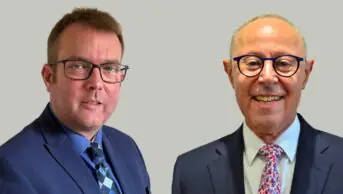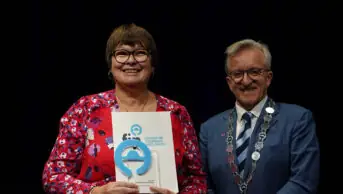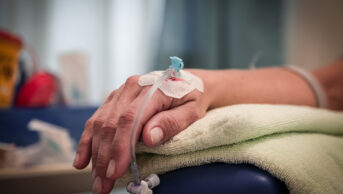Back in the summer of 2012, just as Olympic fever was rising, the Pharmacy and Prescribing Support Unit (PPSU) of NHS Greater Glasgow and Clyde (NHSGGC) was approached to lead the planning for the pharmacy services at the 2014 Commonwealth Games. At that point, the opening ceremony on 23 July 2014 seemed a long way away.
NHSGGC is the largest Health Board in Scotland, serving a population of 1.2 million. the PPSU employs 755 full-time staff and has 17 hospital pharmacy departments supplied by our pharmacy distribution centre, as well as providing prescribing support services to 260 GP practices and holding contracts with nearly 300 community pharmacies.
The head of the PPSU at that time set up a planning group of key people from within our organisation dealing with governance, public health, community pharmacy, procurement and pharmacologistics and prescribing support, and invited partners from the Scottish Government, the Royal Pharmaceutical Society, NHS Education for Scotland and Community Pharmacy Scotland to join. We also had links with Lanarkshire, Tayside and Lothian Health Boards — areas that are hosting events outside Glasgow. We were also fortunate that Mark Stuart, at that point employed as superintendent pharmacist for the London 2012 Olympics, was willing to join and give us the benefit of his extensive knowledge and experience of working at this kind of event. We are delighted that Mr Stuart will also be superintendent pharmacist for the Glasgow 2014 games.
Of course, there would be no pharmacy service at the games without the volunteers, each of whom has agreed to provide a minimum of eight shifts in the polyclinic. The services for athletes and others in the “games family” (accredited people attached such as athletes, team officials, technical officials) will run over a longer period than the competition schedule, with the pharmacy being open for 25 days. We will run two shifts per day: 7am–3.30pm and 2.30pm–11pm. The pharmacy will be part of the 24-hour polyclinic in the athlete village and available to those with appropriate accreditation. It will not be open to the general public or provide any NHS services.
There are fewer volunteer slots available at these games than there were at London 2012 for several reasons, including the single pharmacy premises, shorter duration, fewer sports and fewer nations competing. We were oversubscribed, with 12 or more applicants for each of our places. The successful candidates have come from a variety of backgrounds and locations. Each volunteer has a single day orientation training, a day for role-specific training and half a day of venue-specific training. Glasgow 2014 Medical Services has been keen to keep the requirements for attending training for professional volunteers to a minimum, bearing in mind that those volunteering in medical services will, to a greater or lesser extent, be working within the remit of their day jobs.
Glasgow 2014
Glasgow 2014, the 20th Commonwealth Games, will run over 11 days and feature 71 countries competing in 17 sports. It has a fully integrated parasport schedule, which is the largest at any Commonwealth Games to date.
Work to date
The pharmacy planning work is not just about ensuring there are enough volunteers. We have been involved in decision-making about stocks being held for athlete medical rooms, for bags carried by doctors dealing with spectators and for those doctors who may need to attend an athlete in competition. We have also had to decide what medicines should be stocked in the clinics being run at the games family hotel and satellite villages in Dundee and Edinburgh. We have been working with the PPSU’s existing medicines suppliers to arrange suitable methods of ordering and delivery. And, of course, we are working with the General Pharmaceutical Council on premises registration.
To support provision of services in the satellite villages, Community Pharmacy Scotland has identified a network of local community pharmacies that will dispense Glasgow 2014 prescriptions and provide advice in line with the games processes. This should ensure easier access to any unusual treatments required and minimise delays for the athletes or other officials. Doctors will be informed that any prescriptions should be directed to the polyclinic pharmacy or to these accredited pharmacies only. Prescriptions taken to other pharmacies will be counted as private prescriptions and charged accordingly. We believe it is important that prescriptions for athletes are directed back to the linked pharmacies only to ensure appropriate steps are taken to check for suitability of the prescribed drugs for particular sports.
We have looked at plans and documents developed for London 2012 and adapted them for Glasgow 2014, trying to learn the lessons from London. We are fortunate that arrangements are being put in place for access to MedicinesComplete (www.medicinescomplete.com) to enable pharmacy volunteers to deal with enquiries about medicines. We also have support from the NHSGGC medicines information service to assist the pharmacists working in the polyclinic or the satellite network.
The pharmacy team at NHS Education for Scotland (NES) worked with the Centre for Postgraduate Pharmacy Education to have e-learning packs on drugs in sport reviewed and updated to suit the Commonwealth Games. This will be the mainstay of training for our volunteers before they start in the polyclinic pharmacy. NES is also supporting us by arranging a live webinar for pharmacists working near the venues to ensure they have a chance to hear about the pharmacy services provided within the athlete village and think about what the implications might be for their practice.
There are no additional community pharmacies being set up around the venues during the games. Our existing network will provide services to the extra visitors to the city. We have produced an electronic information booklet for local pharmacists based on work supported by the National Pharmacy Association for the London Olympics.
Next steps
We are testing the pharmacy dispensary system over the coming weeks, as well as completing the necessary training. We have to finalise the review of standard operating procedures for the pharmacy service, including the minor ailments service for non-athletes, and to agree the final proofs of documents such as the official games prescription. The next few months will pass in a flash, but we will be ready to go when the polyclinic pharmacy opens on 13 July.
Did you know?
The mascot for Glasgow 2014 is a thistle called Clyde and he has a pharmacy connection. There was a UK-wide competition for children aged between 6 and 15 years to design the mascot. The winner was Beth Gilmour, at that time aged 12, who is the daughter of Christine Gilmour, NHS Lanarkshire’s director of pharmacy.


